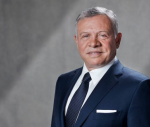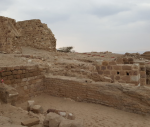You are here
Jordan’s Syria policy
Dec 15,2018 - Last updated at Dec 15,2018
The Arab League will be facing a serious challenge in inviting Syria back to the Arab League 30th Summit to be held in Tunis in March 2019. It is likely that the US, the UK and some EU countries will not only resist this attempt, but will exert significant levels of diplomatic and other types of pressure to thwart such a move.
The US, being the largest player in the region, for now, has a wide range of interests and is likely to stifle all attempts to reintegrate Syria back into the Arab League, until it secures its foreign policy objectives and priorities. The US is likely to hold the track of normalisation of Syria’s regional relations captive to all involved parties accepting its military presence in eastern Syria, and to get concessions on the “deal of the century”, reduction of Iranian, Russian, Chinese and Turkish influence in Syria and Iraq in particular. In this mix, Jordan has a chance to fill an existing gap.
Within this climate of “sand dunes diplomacy”, Jordan is trying to continue holding a balanced position on an imbalanced regional scene. Given the internal strife, Jordan’s Syrian policy ought to be responsive to Jordanian public opinion, which represents Jordan’s interests. Despite some critical assessments of Jordan’s policy on the Syrian crisis, the majority of Jordanians and Syrian refugees think Jordan handled it properly. According to a fresh poll by NAMA and the Konrad Adenauer Stiftung, three quarters of Jordanians and 70 per cent of Syrian refugees said Jordan handled the Syria crisis “very well”, while nearly another quarter of both said “somewhat well”. These popular positions are not necessarily shared by officials on either side.
The Syrian government and its associates delivered some harsh messages, privately and publicly, criticising several Jordanian positions and actions. Since 2011, Jordan’s Syria policy has taken balanced positions and actions to protect the Kingdom’s interests and has resisted substantial pressure from international and regional actors for a deeper involvement in the Syrian civil war. That was not easy, but wise and came at cost. Today, national interests must always be the priority of Jordan’s Syria policy.
Opening the borders is supported by nearly 90 per cent of Jordanians and a similar percentage of Syrian refugees in Jordan, according to the same poll. The policy must capitalise on this support and do more to ease goods traffic through Syria to elevate economic pressure on Jordan’s agriculture and ease access to EU markets, especially after the new addition to the relaxation of rules of origin for Jordanian products exported to the EU.
Jordan’s Syria policy had to accommodate a complex set of interconnected, and often contradictory, interests of allies and regional influencers. The balancing between those who call for toppling Syrian President Bashar Assad’s regime and those supporting Assad internally, regionally and internationally, made Jordan walk a tightrope. All of these complexities came to face a new reality in 2018. Assad came out militarily victorious and his supporters are jubilant. Twenty-five per cent of Jordanians describe relations between the Jordanian and Syrian people as “very good” and 59 per cent describe them as “somewhat good”. Meanwhile, 13 per cent of Jordanians described relations between the Jordanian and Syrian governments as very good and 50 per cent described the relations between the two goverments as being “somewhat good”. There is room for improvement on both fronts, despite all of the material and psychological destruction that took place over the past seven years.
Unlike the US, Iran, Russia, Iraq, Saudi Arabia and Israel, whose roles are seen by the majority of Jordanians and Syrian refugees as “destabilising” in Syria, Jordan and Turkey are perceived by them as the only two countries playing a stabilising role in Syria. The same poll indicates that 88 per cent of Jordanians and 85 per cent of Syrian refugees think that Jordan is playing a stabilising role in Syria, while 70 per cent of Jordanians and 64 per cent of Syrian refugees said they think that Turkey also plays a stabilising role.
Despite regional acceptance or rejection of Jordan’s role, there is an opportunity for Jordan’s diplomacy to carve a new role in regional politics to ensure Jordan’s interests in the upcoming arrangements.
The writer is chairman of NAMA Strategic Intelligence Solutions.
[email protected]













